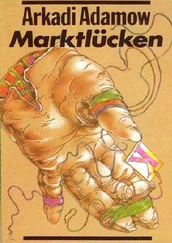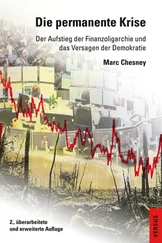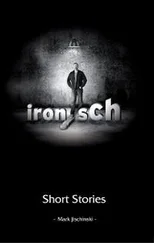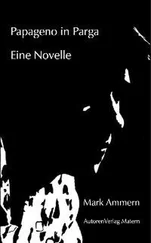Amanda remembered her first palming like Martin’s hand was still on her head; large, knuckly. Make you smart, Martin said. She submitted to it, even though she didn’t like the feel. Her father, Rich, felt uncomfortable, but there were some things you had to do. He had been back in the house on a tentative basis, and his wife wouldn’t want to hear he was making trouble in the neighborhood again, with Martin of all people. Martin was on the second stair of his stoop. We’ll be going along now, Martin, Rich said. It’s fine, Martin said. She’ll be all right now. He removed his hand from her head. Now that Amanda was an adult he didn’t give her palmings. The Braiker boy, though, who lived next door, still got them. He was in high school. He wondered if when he graduated he wouldn’t. There was something comforting about Martin softly rubbing the top of his head, when he said hello. It might make him smart: who knew.
Nobody knew much about Martin other than that he sat on his stoop every morning, watching the B2s go back and forth, both directions. He never wore long pants, unless it was snowing out. He got a haircut every few weeks. Weekends he took a walk to Marine Park, biggest park in the borough other than Prospect, if you count that — but who does. He rollerbladed when he got there, a couple of times around. If he knew people that he passed, he gave them palmings, but only if he knew them. Some mothers pulled their youngest kids away, because it seemed odd. They moved to the bike path when they saw him coming, and put a hand up to wave, and he did the same. Otherwise he kept to himself, with large headphones on, listening to music low enough that no one else could hear.
There had been a piano teacher who rented the basement of Martin’s house for many years, a middle-aged woman who’d been to conservatory in Russia. She kept a handwritten sign wedged under the knocker on the door saying “Piano Lessons,” with her phone number. Amanda had been to her, even, though the Braiker boy was too young. People say Martin was friendly with the woman; that, when children showed up at the basement for their lessons, they sometimes saw Martin through the window sitting on the piano bench turning the sheet music pages. When she stood up to get the door she would pat his head, and answer the bell. Some lessons he sat there listening, for the first part at least, and then he would go out on his stoop. The woman, people said, wrote the word practice , in long loopy letters, on every page of their children’s music books. She underlined it, many times, sometimes so hard that the page broke. She moved out after she hit one of her students. The boy had been playing a chord with the wrong final finger, over and over again — she lost it. Martin was the one who came to the door as the student burst through, face and eyes black and blue. Ever since then he was alone in the house and on the stoop, though the piano lessons sign stayed. It curled up from the humidity, blotched from raindrops but never totally ruined, protected by the eaves.
• • •
When Amanda moved back to the neighborhood a few years after college, after she’d lived in San Francisco for a while and felt it was time to go east, she decided not to go back home to her mother. Rich was out again at that point. There would have been plenty of room. But she had a good job for Pfizer, the drug company that she’d started working for in college. It wasn’t that nobody had expected Amanda to go to college, but one of the city universities would have been fine, don’t you think? her mother liked to say. She had always been the best basketball player in the neighborhood. They put her on the boys’ B team once she started for Good Shepherd. And in high school she only got better, particularly after she hit her woman’s height. Rutgers recruited her and gave her a scholarship, but not enough, of course, to pay for everything. Pfizer let her temp part-time in the off-season, at the office in Newark. The local EVP had played for St. Francis. When Amanda quit the team her sophomore year, they let her work as many hours as she could. She graduated, but it hadn’t really mattered.
The house was ten blocks away from where she grew up. The B2 stopped right in front, on its way to Kings Highway, where Amanda got the Q to take her into the city, where she worked as a regional accounts manager. It was a good bus; it came on time; it was clean. Amanda could sit on it and work. She could sit out on her stoop and wait for it to arrive, no more than a minute or two. Some days, if she wasn’t outside yet, the bus driver dawdled over someone’s MetroCard. He had a soft spot for Amanda. She brought him a Christmas card with a Buckley’s gift certificate every December. When she went up the bus steps Martin waved from his stoop.
It wasn’t long before Amanda started seeing Robert Dillon, who was working at her office in Manhattan. He was an outside hire whose contract was with a PR firm, but he was working with the regional VP to rewrite the copy on the Pfizer website. They sat in the VP’s corner office for hours while the VP brainstormed on and on about what Pfizer stood for, what communities they were looking to help and be a part of, what the essence of their business was. Robert took dutiful notes and asked pointed questions. Some of them verged on the very personal. Sometimes the VP would ask Robert for a line from literature that he could then riff off: We beat on, boats against the current, medical advancements moving up. Robert told Amanda this in her home. Soon Robert and Amanda were commuting together on the B2. The Pfizer contract was long-term and open.
Amanda’s favorite time of the day was early morning, when she woke up without an alarm so as not to disturb Robert, and dressed silently in the running clothes she’d laid out for herself the night before — an old basketball T-shirt, formfitting nylon shorts. When she had lived in San Francisco, she would wake up early and run the hills above the Castro, where every once in a while she would get a peek at the water. It had seemed sunny then, even in winter. But back home in Marine Park, sometimes she’d start her run in the dark, and her route was dictated by which streetlamps would still be on, on the outer rim of the park. With the sun coming up behind her she raced her streetlamp shadow to the next light, until, on her third mile or so, the sun was up enough. Then she crossed Avenue U and went over to the salt marsh, where she could run by the water like she used to — except there were no hills here, none at all. This wasn’t a problem for running, really. It had been for sledding when she was five, before basketball took over the winter. But now, grown up, hills seemed superfluous. On flat ground, she could run effortlessly and focus on nothingness; not pain in her legs, not the heavy pull of her breath; not her father. By the time she got back and was out of the shower Robert would just be stirring.
Robert had grown up in Brooklyn but not in Marine Park. He’d been to a liberal arts college where he studied literature and media, and his favorite bars were in the Village. He’d never met anyone quite like Martin, or when he thought carefully about it, he guessed he’d just never been in such close proximity to someone like him before. It’s got nothing to do with Marine Park, Amanda said indignantly. The guy is touched as shit. But Martin had been around so long that the neighbors were superbly used to him by then, and that was a palpable feeling. Some evenings, when Amanda was in the shower or on business calls, Robert would sit outside with Martin. They’d each be on their own stoop, of course, the day stumbling to an end around them. Martin explained about palming once, but other than that he didn’t have much to say. He said, It’s how I stay warm inside. He wasn’t embarrassed.
Читать дальше











